Before college, Professor Rebecca Olson, ‘05, knew she wanted to become a lawyer. Even in high school, she was fascinated by the mysterious machinations going on behind legislation. From a bill becoming law to election protocol, she wanted to know the full story — and now she does.
Meet Professor Olson
Professor Rebecca J. Olson is a founding partner of Miller & Olson, LLP, where she specializes in political, campaign, election, and nonprofit law. She provides legal advice to corporations and trade associations, and serves as general counsel and treasurer to many campaign committees for local, state, and federal candidates, ballot measures, and corporate and trade association Political Action Committees (PACs).
She also handles matters relating to compliance with campaign, lobby, and election laws, and represents clients on enforcement matters before the Fair Political Practices Commission. Additionally, she specializes in the formation and operation of nonprofit organizations, including compliance with Internal Revenue Code, California Franchise Tax Board and California Attorney General requirements. She is a member of the California Political Attorneys Association. As an accomplished McGeorge School of Law alumna and now professor, she has plenty of insights and advice to share.
Becoming a Lawyer
Professor Olson earned a Political Science degree from Tulane University and decided to become a paralegal – but only as a brief stop on the road to becoming a lawyer. As she learned and grew in her role, paralegal job opportunities started sounding more and more fun, so she stuck with it. At the same time, she was volunteering for a Congressional campaign, where she discovered that she could apply her paralegal skills to the political world. She happened to be working at the law firm that was representing the campaign, giving her the inside scoop. After a few years of learning campaign finance as well as preparing and filing government reports, she applied to law school at McGeorge with a refreshed focus.
Professor Olson was drawn to McGeorge’s proximity to the state capital because she wanted to stay connected to the legislative action. Years later she was again drawn in, this time to teach, when Associate Dean for Academic Affairs and Experiential Learning, Mary-Beth Moylan, called and asked if she’d consider an adjunct position. Spoiler alert: she said yes. She’s found, as both student and professor, that one of McGeorge’s strengths is how much interaction is required of the students even in an online program.
A people person, the lack of face-to-face connection challenged her teaching style and has been a learning curve. She can see, however, “the emphasis that McGeorge puts on ensuring that interaction is occurring and that discussions are happening even though you’re not all sitting in the same room.”
Participate and Communicate
Professor Olson advises McGeorge’s online students to “participate as much as you can once you’re there and communicate.” Just because you’re not sitting in the room or having a spontaneous conversation doesn’t mean you shouldn’t secure the support you need. “If you know something’s going on, you need assistance or an extension, have a concern about the program, or just want advice, reach out!” she said. As much as possible, Professor Olson proactively reaches out to her students, so they know that she’s a real person and here to help. The well-designed combination of flexibility and foundation means that a great education is available to a broader range of law students.
While McGeorge offers a comprehensive and rigorous program, it’s not aimed to break you down, she says. It’s more about extending your established knowledge while teaching you to speak the language of lawyers and become their most valuable asset. “I think it can be a hugely important thing for a career. It just allows more choices and potential for growth,” Olson said. She laughingly has to plug her favorite class of all, the Election Law course, and explains how it provides a 360-degree view of a complex subject, and positions students to fill legal roles in a complex political field.
“I finally had people understand what election law even meant!” Olson said. How are elections run? How are votes counted? How do you keep up with the updated Supreme Court rulings on voter rights? There’s been a significant change of focus, and an MSL helps you meet the newly increased demand for scrutiny. The public needs qualified people with a strong backbone to run these elections, and Professor Olson assures us that the need “has grown significantly and continues to grow.”
Find Your Passion
Her final words for prospective students aren’t just law school advice, but life advice: Until you get interested in something specific, it’s really hard to know what jobs are out there to aim for. If you find an interest in something, delve into it, and find out how people make a living doing it. “You may be surprised,” she says. “We walk through life thinking there’s a set number of types of occupations, and there aren’t. There are a significant number of different types. Don’t pigeonhole yourself, be open, and figure out what gets you excited every day. I’m an election law nerd and I love it, but that’s not for everybody. Find your passion! There’s no one path that makes you a successful person.”
